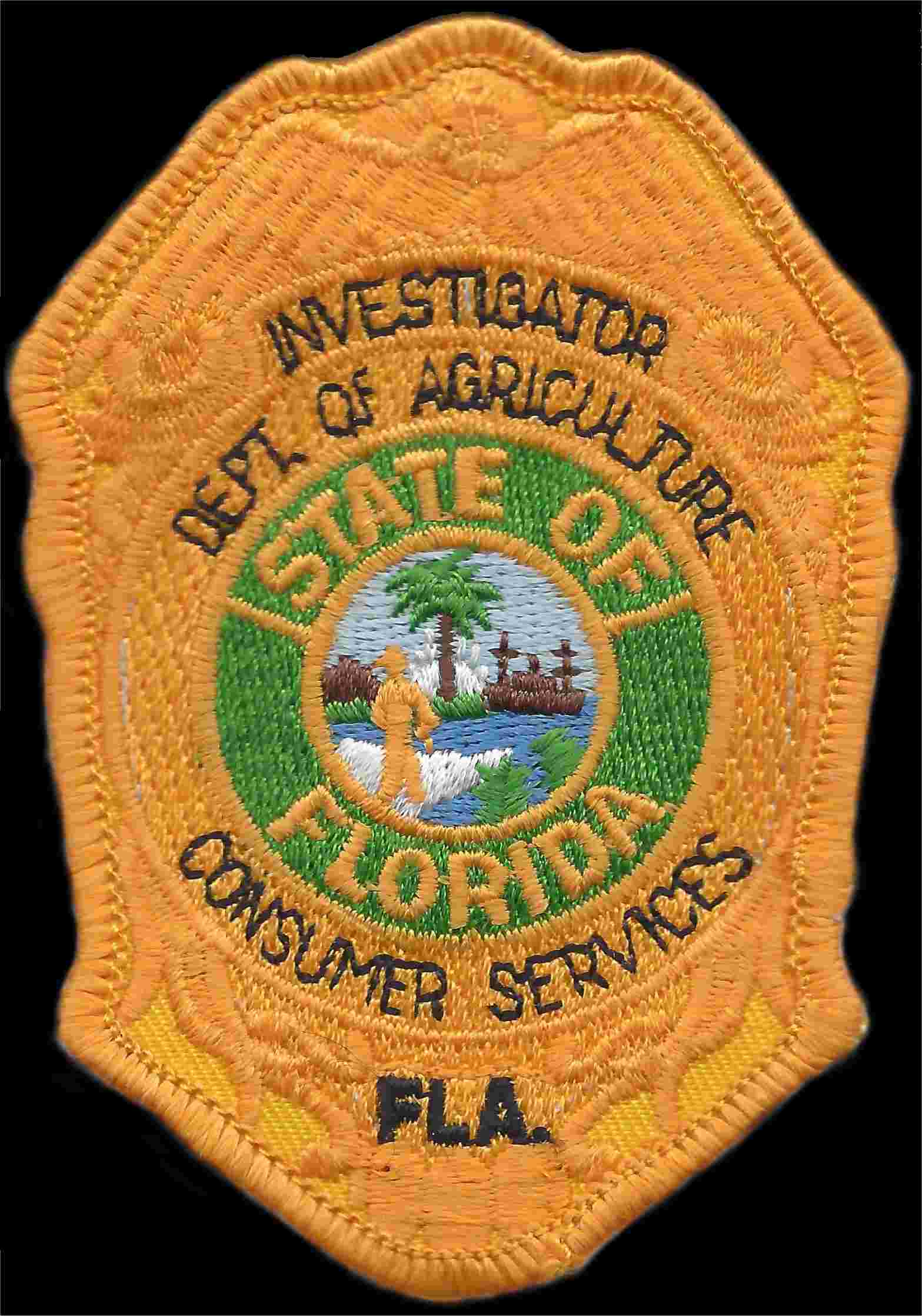Exploring The Florida Department Of Agriculture: A Comprehensive Guide
The Florida Department of Agriculture and Consumer Services (FDACS) plays a crucial role in ensuring the safety, sustainability, and growth of Florida's agricultural sector. As one of the largest industries in the state, agriculture not only provides food and jobs but also influences the economy and environment. This article delves into the various functions, programs, and initiatives of FDACS, highlighting its importance in the Sunshine State.
In this extensive guide, we will explore the history of the Florida Department of Agriculture, its organizational structure, key responsibilities, and the services it provides to both consumers and agricultural producers. Additionally, we will examine the department's ongoing challenges and how it adapts to the changing landscape of agriculture and consumer needs.
Whether you are a resident of Florida, a farmer, or simply interested in agriculture, understanding the role of the Florida Department of Agriculture is vital. By the end of this article, you will have a thorough understanding of how FDACS serves the community and contributes to the state's agricultural success.
Table of Contents
History of the Florida Department of Agriculture
The Florida Department of Agriculture has a rich history that dates back to its establishment in 1885. Initially, the department focused on agricultural statistics and pest control to support the growing citrus industry. Over the years, its responsibilities expanded to include consumer protection, food safety, and environmental stewardship.
In 1961, the department was reorganized to better serve the needs of Florida's diverse agricultural landscape. Today, FDACS oversees a wide range of programs aimed at promoting agricultural interests while ensuring consumer safety and public health.
Organizational Structure of FDACS
FDACS is headed by the Commissioner of Agriculture, who is elected to a four-year term. The department is divided into several divisions, each responsible for specific areas of agriculture and consumer services. The divisions include:
- Division of Agricultural Environmental Services
- Division of Food, Nutrition, and Wellness
- Division of Forestry
- Division of Plant Industry
- Division of Marketing and Development
- Division of Animal Industry
Key Responsibilities of FDACS
FDACS has numerous responsibilities that contribute to the overall well-being of Florida's agricultural sector. Some of the key responsibilities include:
- Regulating agricultural practices to ensure sustainability and environmental protection.
- Enforcing food safety standards to protect consumers.
- Providing support and resources to farmers and agricultural businesses.
- Promoting Florida agricultural products through marketing initiatives.
- Conducting research and disseminating information on agricultural best practices.
Services Provided by FDACS
FDACS offers a variety of services to assist both consumers and agricultural producers. These services include:
- Licensing and Permitting: FDACS issues licenses for various agricultural activities, including pesticide application and food processing.
- Inspections: Regular inspections are conducted to ensure compliance with food safety and agricultural regulations.
- Education and Outreach: The department provides educational resources and training programs for farmers and consumers.
- Consumer Protection: FDACS investigates consumer complaints related to agriculture and food safety.
Current Initiatives and Programs
FDACS is actively involved in several initiatives aimed at enhancing the agricultural industry and addressing current challenges. Some notable programs include:
- Florida Agriculture in the Classroom: This program promotes agricultural education in schools to foster a better understanding of the industry among students.
- Healthy Food Financing Initiative: Aiming to improve access to healthy foods in underserved areas, this initiative supports local farms and food producers.
- Water Conservation Programs: FDACS promotes sustainable water practices to address Florida's water management challenges.
Challenges Facing Florida Agriculture
The agricultural sector in Florida faces numerous challenges, including climate change, invasive pests, and competition from international markets. FDACS continuously works to address these issues by implementing innovative solutions and supporting research efforts.
Statistics and Impact of FDACS
According to recent data from the Florida Agricultural Statistics Service, Florida ranks among the top states in the U.S. for various agricultural products, including:
- Citrus fruits (oranges, grapefruits)
- Sugarcane
- Tomatoes
- Strawberries
Furthermore, agriculture contributes over $120 billion to Florida's economy, highlighting the importance of FDACS in promoting and supporting this vital industry.
Conclusion
In summary, the Florida Department of Agriculture and Consumer Services plays a pivotal role in maintaining the integrity and growth of Florida's agricultural sector. Through its various programs and initiatives, FDACS ensures the safety and sustainability of agriculture while supporting consumers and producers alike.
We encourage you to engage with FDACS, whether through their educational programs, by following their initiatives, or by providing feedback on their services. Your involvement can help shape the future of agriculture in Florida. Feel free to leave a comment below or share this article with others interested in learning more about the Florida Department of Agriculture.
Thank you for reading, and we look forward to seeing you back on our site for more informative articles!
Article Recommendations



ncG1vNJzZmilqZu8rbXAZ5qopV%2BcrrOwxKdoaWeWobyztcOaZJ2doKl6sLKMmp5noKSiuQ%3D%3D